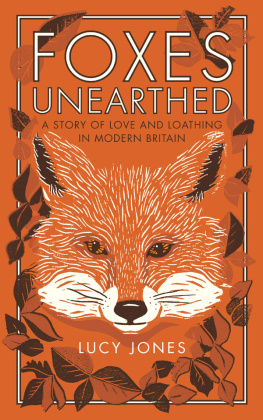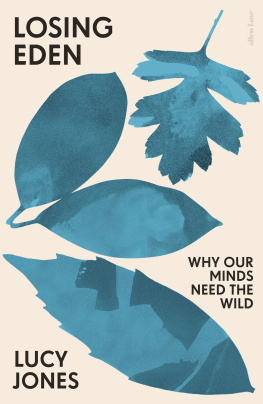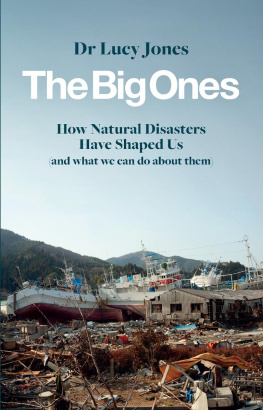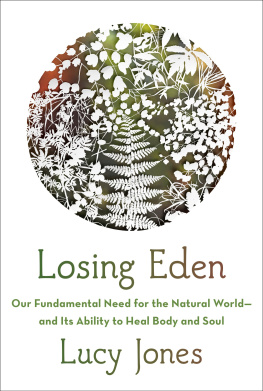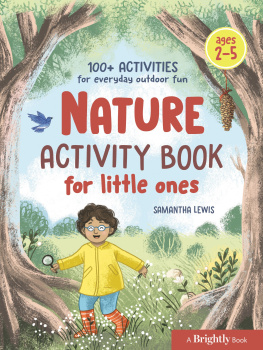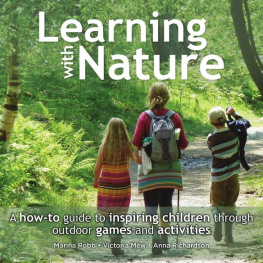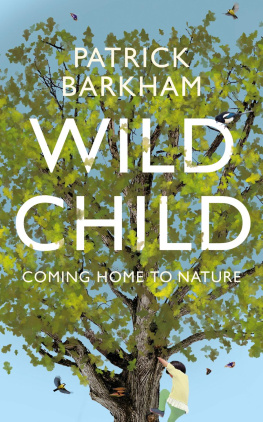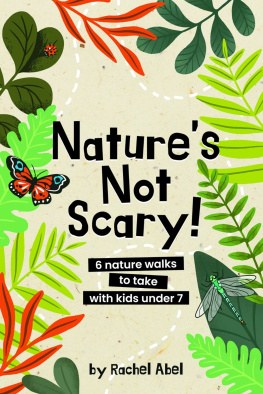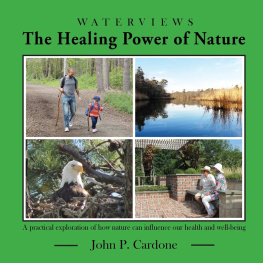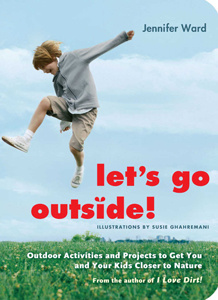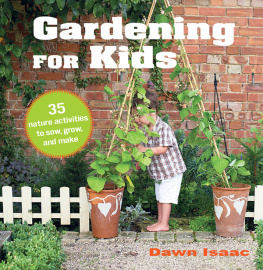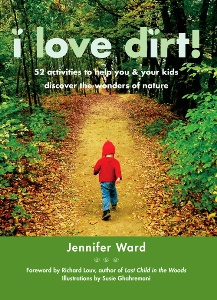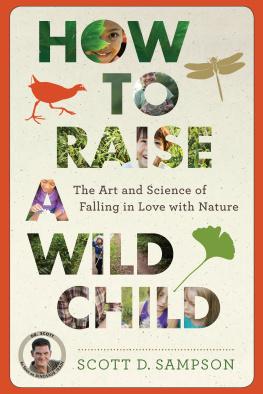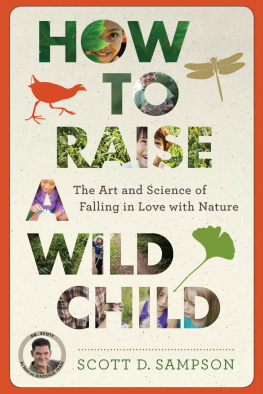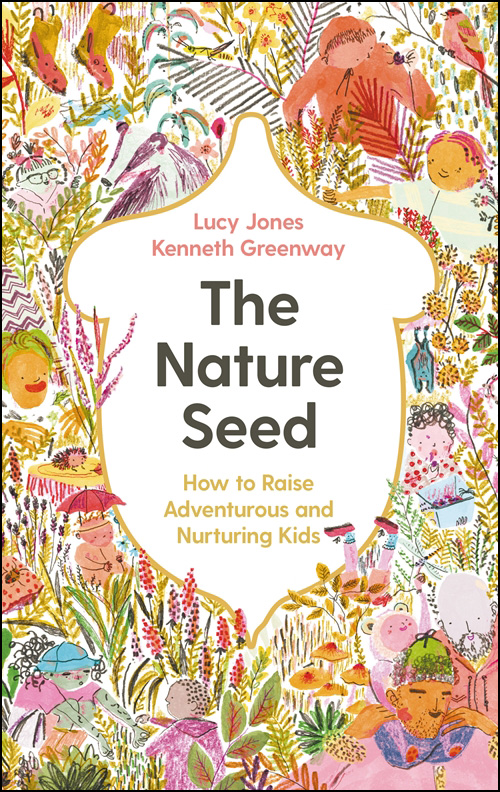Contents
Guide
Lucy Jones is a writer and journalist especially interested in the psychological relationship between humans and the rest of nature. Her first book, Foxes Unearthed, won the Society of Authors Roger Deakin Award and her second, Losing Eden, explored the link between mental health and nature. She spends as much time as possible outside with her children.
Kenneth Greenway is the Cemetery Park Manager of Tower Hamlets Cemetery Park in London. He has worked in nature conservation for almost twenty-five years and has two decades of experience working with children in natural spaces, including running forest schools. He has two children and spends most of his time immersed in the living world.

Kens eldest, Amelia, holding a female emperor dragonfly at the Soanes Centre, Tower Hamlets Cemetery Park
Lucy Jones & Kenneth Greenway
The Nature Seed
How to Raise Adventurous and Nurturing Kids


First published in Great Britain in 2021 by
Souvenir Press,
an imprint of Profile Books Ltd
29 Cloth Fair
London
EC1A 7JQ
www.profilebooks.co.uk
Copyright 2021 Lucy Jones and Kenneth Greenway
Image credits: Photographs are courtesy of the authors unless specified below. Image on p. is taken from Wild Food: A Complete Guide for Foragers by Roger Phillips, Roger Phillips 1983, reproduced with permission of the Licensor through PLSclear.
Design by James Alexander/www.jadedesign.co.uk
1 3 5 7 9 10 8 6 4 2
Printed and bound in Italy by L.E.G.O. Spa
The moral right of the author has been asserted.
All rights reserved. Without limiting the rights under copyright reserved above, no part of this publication may be reproduced, stored or introduced into a retrieval system, or transmitted, in any form or by any means (electronic, mechanical, photocopying, recording or otherwise), without the prior written permission of both the copyright owner and the publisher of this book.
A CIP catalogue record for this book is available from the British Library.
ISBN 978 1 78816 797 0
eISBN 978 1 78283 850 0
Lucy: For Skylark, Swift, Wren and Jim, who carries us all.
Kenneth: To my Mum and Dad who allowed me to follow my heart, and to my wife Zoe who stands by me, and for the two mighty girls in my life, my daughters, Amelia and Elsie, youre my most treasured and entertaining adventure. This book is for you all! Thank you.

Kens youngest, Elsie, showing off her muddy hands dirt-tastic!
Chapter One
A New, Old Playground
If a child is to keep alive his inborn sense of wonder he needs the companionship of at least one adult who can share it, rediscovering with him the joy, excitement and mystery of the world we live in.
Rachel Carson, The Sense of Wonder, 1965
In the beginning, before there were crayons and balls, building blocks and books, there was nature. The oldest playground in the world is the natural world. Its where our hunter-gatherer ancestors lived, side by side with wildlife, plants, birds, lakes, trees, rain, snow and wind. Of course it wasnt nature, it was just home. Playing in nature, then, is one of the most ancient activities on Earth. Parents spending time with their children outside has been the human way for millennia. Children exploring the various loose parts of the outdoors, roaming free in open space, finding roosts and making dens to hide in, and learning through outdoor play, risk and discovery has always been a hallmark of early life.
Well, until recently. Today, for the first time in human history, we in the industrialised West spend between 1 and 5 per cent of our time outside. Our children are enclosed in classrooms and houses and cars and, for various powerful and systemic reasons, feeling engaged and connected with the natural world is not a universal experience.
This matters. A relationship with nature should be a birthright for everyone. Contact with the wild gives all of us opportunities for restoration, peace, creativity, awe, joy, rootedness, self-esteem, fun, resilience and wonder.
The Nature Seed is for anyone with a child in their life who wants to foster and nurture their and their own! bond with nature. We begin with babies and children in their early years and journey through middle childhood until the age of eleven or so, looking forward to adolescence. The book is filled with ideas, tips and techniques tailored to different age groups, for families living in both the countryside and the city. Your local nature patch might be a town cemetery, the verges on an estate or an urban woodland. It might be a pond or a river or the sea. You might have a garden or a balcony or a windowsill.
This book has suggestions for activities that can be used in various environments, and a philosophy that can be utilised in even the most urban areas. Our ideas and ethos are drawn from Kens significant expertise gained from decades of extensive experience in environmental education, working with children outdoors and with his own young daughters; and from Lucys time spent in nature with her children, and her years of working as a journalist and author, writing about science, environment and health for national newspapers and magazines.
Although it might seem that those in rural areas have greater opportunities to commune with the living world, the estrangement from nature applies across the UK. We live in a country where wildlife species are in grave decline, woodlands and green spaces are threatened and access to nature is unequal. Concurrently, habitats for learning through the senses, imaginative play and involvement with the more-than-human world are depleted, too. We can fight against the systems of destruction and inequality and, in the meantime, we can work with what weve got. Even in the most nature-deprived areas, you will find moments of wonder and awe.
The philosophy and loose method of The Nature Seed aim to be accessible for all. We do not yet live in a fair and just society. Nature deprivation is driven by a constellation of socioeconomic and cultural factors. Class, income and ethnicity influence a persons relationship to nature. Black, Asian and minority ethnic people may experience hostility and racism in natural spaces, and those living in deprived neighbourhoods have less access to open landscapes or high-quality green space.
It is urgent and critical that structural and political changes are made to address the inequality and neglect that lead to environmental and spatial injustice. Nature will mean different things to different cultures, but the mainstream stereotype and representation of nature in the UK as a white, middle-class, luxury pursuit is a fallacy and excludes people both from the experience of spending time in the living world and from the multitude of health and well-being benefits it can offer.


